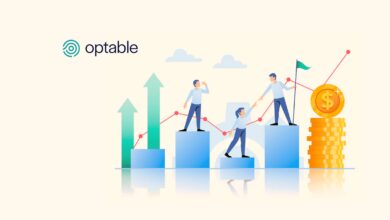3 ways to use predictive analytics to make better decisions

In the digital age, businesses are constantly collecting vast amounts of data about their customers, operations, and market trends. However, many struggle to extract valuable insights from this data. This is where predictive analytics comes in.
Predictive analytics, a type of artificial intelligence, utilizes historical data and advanced algorithms to forecast future trends, anticipate customer needs, and guide strategic decision-making. While generative AI often dominates discussions in the tech world, predictive modeling remains a crucial tool that businesses should leverage. In fact, the importance of predictive capabilities is highlighted in the book "Priority is Prediction: Seven Principles to Guide Enterprises Toward Better Decisions and Greater Outcomes."
To gain a deeper understanding of how predictive analytics drives strategic decision-making, let’s explore three key ways in which it can be utilized:
- Anticipating customer behavior to drive personalization:
Predictive analytics enables businesses to analyze past customer behaviors and predict future actions. This allows for the creation of personalized marketing campaigns tailored to individual preferences. For example, ecommerce marketers can segment their audiences based on browsing and purchasing history to deliver personalized email campaigns with product recommendations. The benefits of this approach include increased engagement rates, higher conversion rates, and improved customer loyalty. To execute this effectively, businesses should integrate predictive tools with digital experience platforms and continuously refine customer segmentation for enhanced personalization. - Optimizing marketing campaign performance:
Predictive analytics can be used to optimize campaign performance by identifying the most effective strategies and channels based on historical data. This data-driven approach enables businesses to allocate budgets and resources more efficiently. For instance, predictive models can forecast the performance of different ad channels, allowing teams to focus their spending on platforms that yield the best results. The result is better overall ROI, improved return on ad spend, and increased marketing effectiveness. To excel in this area, businesses should use predictive analytics tools to assess campaign effectiveness continually and allocate resources where they deliver the highest ROI. - Enhancing lead scoring and customer acquisition:
Predictive analytics plays a crucial role in refining lead scoring by identifying high-value prospects more accurately. This allows businesses to focus on leads with the highest likelihood of converting. For example, B2B marketing teams can prioritize leads based on past engagement and behavior, enabling sales teams to target high-potential prospects. This approach leads to improved lead quality, faster conversion rates, and more effective customer acquisition strategies. To achieve optimal results, businesses should regularly update their lead scoring models with real-time data from various touchpoints across the customer journey.Predictive analytics transforms marketing strategies from reactive to proactive, enabling smarter decision-making through personalized campaigns, optimized performance, and enhanced lead scoring. As businesses strive for quicker decision-making, personalized experiences, and comprehensive feedback loops, those adopting predictive tools will gain a competitive edge.
—
FAQs:
- What is predictive analytics?
Predictive analytics is a form of artificial intelligence that uses historical data and advanced algorithms to forecast future trends, anticipate customer needs, and guide strategic decision-making. - How can predictive analytics drive personalized marketing campaigns?
Predictive analytics allows businesses to analyze past customer behaviors and predict future actions, enabling the creation of personalized marketing campaigns tailored to individual preferences. - How does predictive analytics optimize marketing campaign performance?
Predictive analytics helps businesses identify the most effective strategies and channels by analyzing historical data, allowing for more efficient allocation of budgets and resources. - How does predictive analytics enhance lead scoring and customer acquisition?
Predictive analytics refines lead scoring by accurately identifying high-value prospects, enabling businesses to focus on leads most likely to convert and improving customer acquisition strategies. - Why is predictive analytics essential for businesses in the digital age?
Predictive analytics transforms marketing strategies from reactive to proactive, enabling smarter decision-making through personalized campaigns, optimized performance, and enhanced lead scoring, giving businesses a competitive edge.


